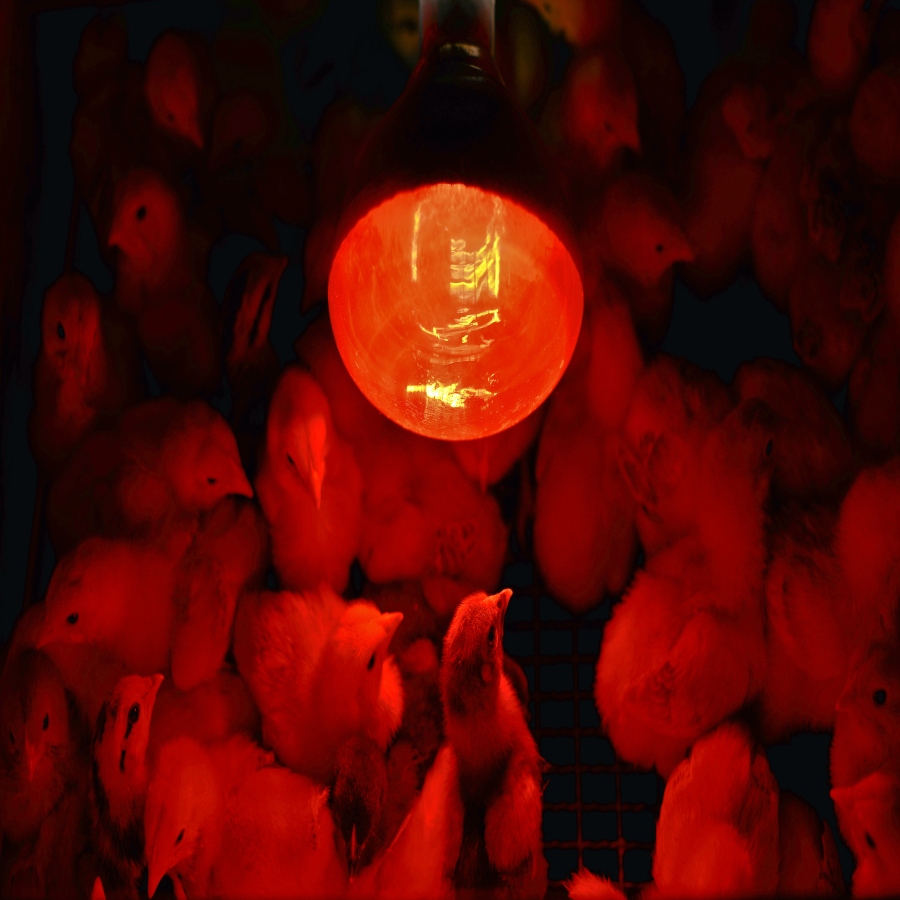Protection
Erik is raising three chicks in his backyard. Erik is always telling us how he’ll have fresh eggs once they’re grown, bright orange yolks from the paprika-mixed grains he’s feeding them, tough shells that require a good thwack to crack. We’re all jealous so we tell him a hawk will snatch them up while he’s at school, or that the neighbor’s Pit Bull Terrier will break free from its leash and turn one into puppy chow. When we visit, he has a new contraption built for the chicks: a miniature wooden house with ramps and ladders and a nesting box. He built it in woodshop. We don’t take elective classes like woodshop. We take computer science or statistics because we’re only allowed to be doctors or engineers. And not even really doctors, because mom says women can’t stand as long especially after having children, so they can’t perform surgery well. Where are the chicks? We ask. They’re in the main house, Erik says. Under the asphalt roof so no hawks can pluck them away, behind the walls so no dogs can bite into them. We peer into the small square window, an unevenly cut hole in the wood, and we see the fluffy wing and tiny beak of a chick. But when will they go out to play? we wonder. When I let them, Erik says. But we never see him let them out again.
Freedom
When it rained, we’d pick up earthworms with our bare hands, moving them from the middle of the sidewalk to the grass. We were little heroes saving lives on our way back from school like it was nothing. Because real heroes don’t ask for praise or recognition. The day after a heavy storm, the sun already out and drying the roads and tennis courts, we saw one long earthworm flattened in the middle with its two ends still wriggling, like life was still in reach so long as it could break free of its other half. We dug out the metal ruler from our pencil case and sliced down the earthworm’s desiccated middle. Then we picked up each wriggling half and moved them to the damp soil patch besides mom’s snow pea plants. Be free, we thought. Survive. Later, after we finished our homework and had computer time, we looked it up online and prayed we made the cut behind the earthworm’s clitellum, so at least the tail could regenerate, no suffering prolonged.
Affection
Duo Duo (“多多” – nicknamed so by my aunt and uncle because she was an unexpected child, an extra element tacked onto their lives) got a bernedoodle named Bilbo. I found out through her Instagram stories. So did my parents. My parents ask me why she isn’t having kids and I tell them it’s a decision that my cousin and her husband can make on their own. I don’t tell my parents that the bernedoodle is an emotional support animal. That’s information for my cousin to share. Bilbo is a fluffy, soft, hyper thing always vying for human attention. The moment I look away, he begins to whimper, and I have to crouch down and start petting him again. He pants and lets his pink tongue dangle out of his mouth like he wants more of something. My cousin picks him up like a baby. “Do you want to hold him?” Duo Duo asks. “No,” I say. Not to offend. Maybe I’m over projecting my personal preferences onto the dog; just because I don’t like being carried or tossed around or hugged doesn’t mean Bilbo doesn’t. But really, what’s so good about being held? Your unpredictable gushes of skin and bumps of spine exposed to foreign fingertips? Good for them though, I think. I hope taking care of a dog will keep her mind off any personal troubles. But I hope she doesn’t ask me to take care of him when she flies back to Shanghai for Chinese New Year. I’d keep him fed, for sure, but I’m not sure I can shower Bilbo with lots of cuddles in bed, and Bilbo seems like the kind of dog who needs that kind of affection to survive.
Companionship
Spud nibbles on pineapple leaves. He’s a fat, white rabbit–the type raised for eating. Of course, my sister is vegetarian and would never eat her foster pet (which she never ended up returning, so I suppose Spud is hers now). When we were little, we thought: we will get a dog once we’re adults; we will get a cat; we will get a few ducks and dig a pond for them; we will start a small farm where no one eats anything with a cute face, and instead you cuddle with them as you please. But it’d have to be after we became adults because we knew dad had eaten dogs used for his medical lab experiments at Fudan University. He said dog tastes bad, but we stayed vigilant and waited patiently until we were across the country, living on our own. Now my sister has one rabbit and one chinchilla–used to be two but she found one toppled over like it had passed in its sleep a Friday evening after she’d returned from work. I don’t know if I can raise something that’ll die before me. I have trouble squashing the Machiavellian thought from my head: what was the whole point? So I focus on seven-pound Spud and the spiky pineapple leaves, drag the FaceTime window to the side of my screen and navigate to Google: it looks like pineapple leaves are nutritious, packed with fiber and calcium oxalate and Bromelain, which reduces swelling and inflammation, and maybe I’ll boil a few leaves and drink the water as tea because my body feels a bit inflamed and I don’t know why these white blood cells are trying so hard to fight outside invaders that now I’m the one left burning.

